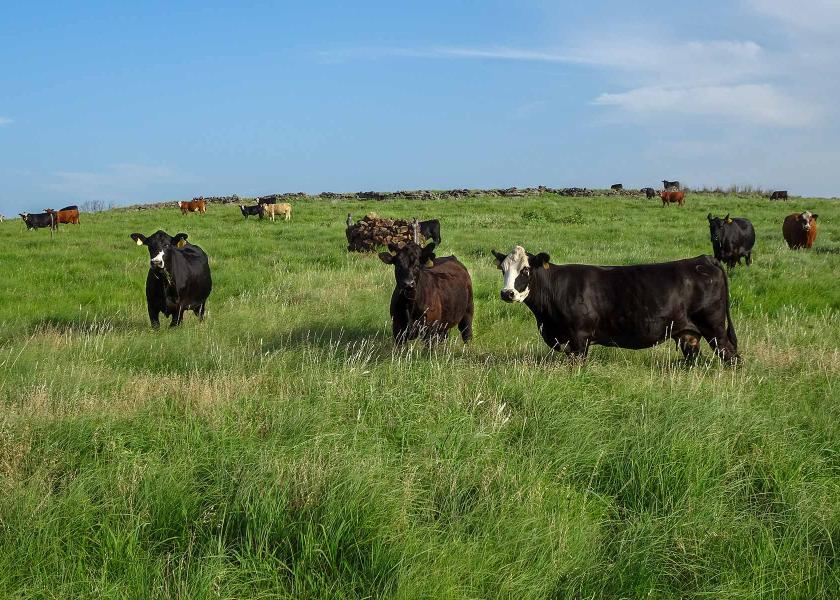Kansas Rancher Testifies Before Senate Ag Committee on Cattle Markets

WASHINGTON (June 23, 2021) — Today, Mr. Mark Gardiner, the owner-operator of Gardiner Angus Ranch and an NCBA member, testified before the U.S. Senate Agriculture Committee on key market challenges that have long threatened the profitability of cattle and beef producers. He was joined by leading industry economists who NCBA has worked closely with to explore solutions to the current unsustainable market dynamics.
The hearing titled, “Examining Markets, Transparency, and Prices from Cattle Producer to Consumer” addressed a wide range of issues, including the urgent need for robust price discovery and differing industry views on how to achieve it, greater market transparency and oversight, and expanded beef processing capacity.
“As we stated in our written testimony today, the wide-ranging market challenges our producers are facing cannot be remedied with a single solution overnight,” said NCBA Vice President of Government Affairs Ethan Lane. “We must address the issues preventing our members from securing their share of the beef dollar, but we must do so in a way that respects the voices of all cattle producers, regardless of how they choose to market their cattle. We thank Mr. Gardiner for his insights, and we thank Chairwoman Stabenow, Ranking Member Boozman, and other Senators on the committee for the investment they’ve demonstrated in the issues facing America’s cattle producers. We appreciate the care taken by both the majority and minority to consult and select a witness panel that can speak to the current market dynamics from multiple angles.”
The hearing today comes on the heels of growing conversation about cattle markets both in Congress and across the country. Earlier this month, NCBA led a letter with the support of 37 affiliate state cattle organizations urging the leadership of the U.S. Senate and House Agriculture Committees to address critical areas of concern in the cattle and beef industry. Multiple lawmakers on both sides of the aisle have written the U.S. Department of Justice calling for the swift conclusion of their investigation into whether or not anticompetitive practices have taken place in the meatpacking sector. NCBA was also at the forefront in 2019 of calling for an investigation after the “black swan” market event of a fire at Tyson Foods’ Finney County beef plant in Holcomb, Kansas.
Recent industry meetings in Phoenix, Arizona and Kansas City, Missouri have also brought together economists, associations, and market participants to discuss industry-led solutions.
In his opening remarks, Gardiner confirmed the importance of solutions that put producers in the driver’s seat. “Please do not create regulations and legislation that have the unintended consequence of harming value-based marketing. Doing so would undo many years of progress for producers such as my family and those of our customers,” said Gardiner. “Onerous legislation has the potential to result in a reversal of quality that is simply unacceptable to consumers.”
BACKGROUND
Cattle producers have long witnessed the decline of negotiated fed cattle trade, and NCBA has been the leading industry voice discussing how to increase opportunities for producer profitability in this landscape. The supply of cattle and the demand for U.S. beef are both strong, but the bottleneck in the middle caused by a lack of hook space has stifled producer profitability and created unsustainable market dynamics.
While the use of formulas and grids help cattle producers manage risk and capture more value for their product, these methods depend upon the price discovery that occurs in the direct, buyer-seller interactions of negotiated transactions. Current academic research has shown that more negotiated trade is needed to achieve “robust” price discovery within the industry.
NCBA's grassroots policy — formed through debate and discussion among members from every sector of the supply chain — states that, “NCBA supports a voluntary approach that 1) increases frequent and transparent negotiated trade to regionally sufficient levels… and 2) includes triggers to be determined by a working group of NCBA producer leaders.” The policy further states, “if the voluntary approach does not achieve robust price discovery…and triggers are activated, NCBA will pursue a legislative or regulatory solution determined by the membership.”







